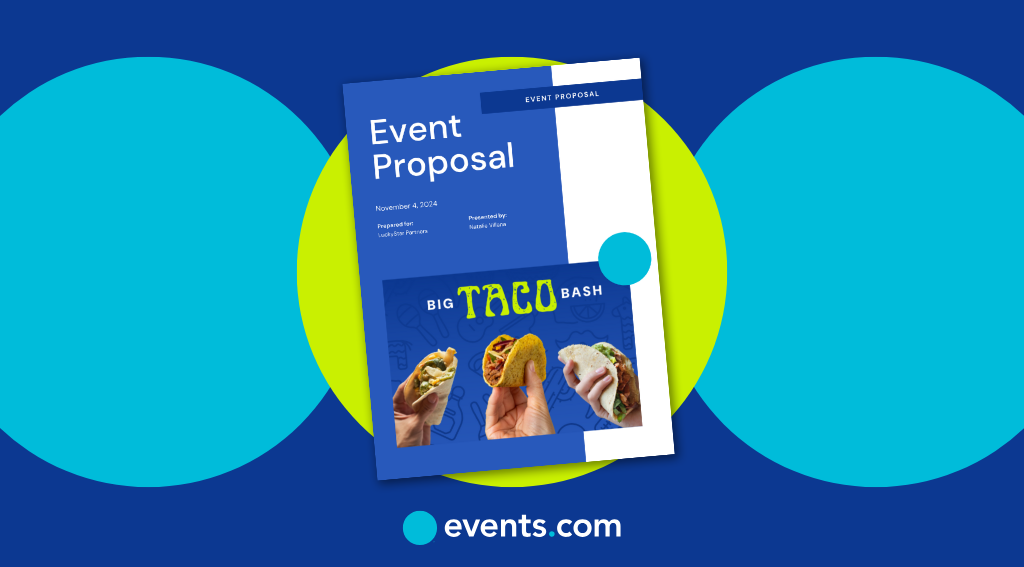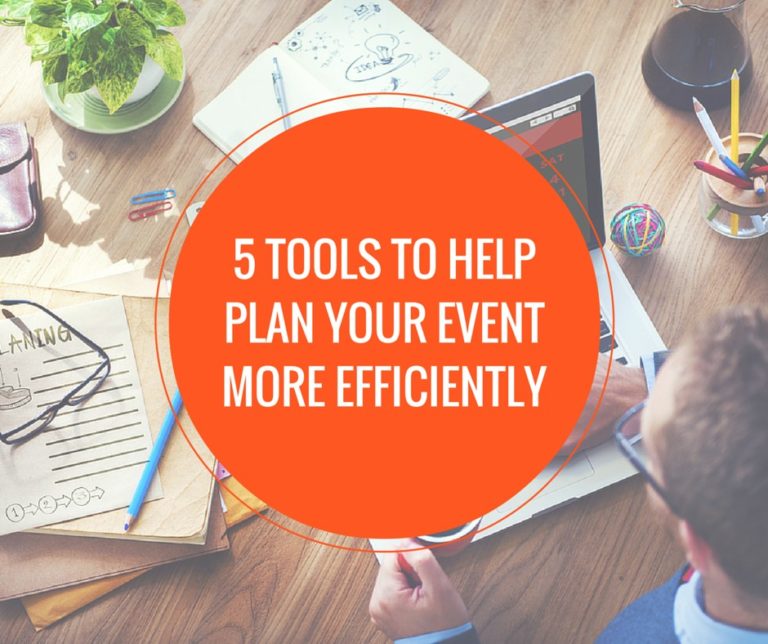When you’re planning an event, one of the first steps is to write an event planning proposal. But it’s about more than just simply writing your proposal. Your event proposal needs to be effective and compelling in order to appeal to your clients and event stakeholders.
If you’re wondering what an event planning proposal is and how to write an effective one, keep reading.
What Is an Event Planning Proposal and What Is Its Purpose?
Event planners have several responsibilities, with the main responsibility being to plan and host a successful event. And to do that, event planners need to figure out ways to attract people to their events — both clients and stakeholders alike. How? Well, there are a few different things you can do as an event planner, but your first step should be to craft a compelling event planning proposal, which will lay the foundation for your entire event planning process. But what is an event planning proposal and what purpose does it serve?
Event planning proposals are pieces of written content where you’ll be able to explain your event vision and why your clients and stakeholders should invest in your event. After all, events are expensive and you’re going to need all the help you can get with funding.
11 Steps To Write an Effective Planning Proposal for Events
If you’re ready to write an effective planning proposal and bring your event to life, follow these 11 steps.
1. Outline the Events’ Objectives and Scope
Your first step in writing an effective event proposal is to outline your events’ objectives and scope. Your scope should answer these questions:
- What are you planning for your event? What’s your event concept and outline, what entertainment will you have, etc.?Â
- Why are you planning your event? What is the purpose of your event? What do you hope to achieve?
- Who are you planning your event for? Who is your target audience, what are their challenges, and how will your event benefit them?
- Where will your event take place? Do you have an event venue in mind?Â
- When will your event take place? What date and time are you thinking? Do they coincide with other important dates?Â
- How are you going to execute your event? What steps are needed to make sure your event is a success?Â
2. Create a Profile of Your Target Audience
Your event is nothing without an audience to support it. If you already have customers, that’s great but you could still benefit from creating a profile for your target audience as a way to reach more customers and attract a wider audience.
Creating a profile for your target audience is the best way for you to put yourself in their shoes. Think about your potential client. What are their challenges and pain points? How can you help them? What do they like? What do they dislike? What motivates them?
Consider their behaviors, such as their buying patterns and what social media platforms they’re on. The profile should also cover basic information like age, gender, location, education level, etc.
3. Select the Venue and Explain the Logistics
When planning an event, an important step is choosing the right venue. In your planning proposal, this is your time to shine and explain why you’ve chosen your venue and the logistics behind it. Explain your venue proposals and how they will improve your event experience. Do they come with any add-ons? Do they have immersive and interactive experiences?
Take a moment to also explain the logistics behind your venue choices. Things like moving furniture and decorations in and out of the venue, installing equipment, setting up lighting and sound, managing guest registration and ticketing, etc.
You need to let your clients and stakeholders know everything that goes along with choosing your venue so that they can be prepared and informed.
4. Mention the Software and Technology Required
Your event needs software and technology to function properly. We’re living in a technology-filled world, so it only makes sense, right? So make sure to include whatever software and technology your event will require in your proposal for event planning. This could be event management software, virtual reality (VR), augmented reality (AR), security software like facial recognition, and the like. Explain what each does and why you’ve included it.
5. Create a List of Vendors
Much like with your audience, your event will fall flat without vendors there to support your event. Vendors are anyone who distributes goods, services, and entertainment. It could be your catering company, it could be the band or DJ you hire, it could be the company you’ve chosen to pitch up tents or supply the lighting. Whoever you’re hiring, whatever services you’re obtaining for your event, and how you plan on securing them, need to be listed in your proposal creation.
Here are some common vendors for events:
- Venue managerÂ
- Food and beverageÂ
- EntertainmentÂ
- DecoratorÂ
- FloristÂ
- Photographers
- VideographersÂ
6. Specify the Event’s Aesthetics
Now’s your chance to really impress and appeal to your stakeholders by showing them the aesthetics behind your event. Choose the type of event you’ll be hosting and showcase its theme. Highlight the emotions you want to convey through fabrics, colors, or patterns. Come up with some event layout ideas, seating and decoration arrangements, lighting, and more. Everything that is going to make your event unique and shine should be laid out for your stakeholders to see and go, “Yep, that’s an event idea I want a stake in!”
7. Outline Your Event’s Marketing Campaign Plan
Okay, now’s the boring part — your event’s marketing plan. Every event needs one, it’s how you’ll advertise and create buzz around your event and how you’ll reach out to your target audience. A good event marketing plan will focus on strategic marketing tactics. You’ll need to figure out the channels in which you want to market yourself, but to do that, you’ll need to figure out what channels your target audience is on and are more receptive to. You could use social media, email marketing, advertisements on television, etc.
Your marketing plan should also include:
- An event outline, including event objectives and goals
- Branding strategies and how your company is represented
- Estimated budgets and breakdown of costsÂ
8. Define the Budget for Your Event
Your event planning proposal needs to outline your event budget or at least the anticipated budget. You don’t necessarily need to spend your entire budget, but your budget will exist to keep you from overspending. When coming up with a budget, make sure to include what-if scenarios. This means thinking about what could go wrong and weighing in those costs. Your event budget should also plan for everything that your event needs, including costs for venues, entertainment, staffing, and security.
9. Include a Timeline With Milestones
Planning your event is a lot of hard work, which is why you need to come up with an event overview with a timeline and milestones. Your event timeline should include milestones such as the before, during, and after of your event. Before your event, think about all the tasks and requirements your event needs before the big day and assign those out to your helpers. Break them into smaller tasks so they don’t seem so overwhelming. Make sure everyone is aware of the deadlines and contingencies.
To help your attendees prepare, provide them with a schedule of dates, speakers, and activities that will happen during your event. And as for after your event, you’ll want to include things like post-event follow-ups and surveys.
10. Explain the KPIs You Will Use To Measure Success
Once your event has ended, it’s time to measure your success. It’s important that you include what key performance indicators (KPIs) you’ll be using so that your stakeholders know that you’re invested in measuring your success rates and figuring out what you could improve on for any upcoming event. Popular event KPIs include check-in rates, active community members, speaker engagement, best-performing topics, live polling response rate, total registrations, returning attendees, and more.
11. Add a Section To Outline Policies
As your event planning proposal comes to an end, it’s time to add in one last section that outlines your event policies. Event policies are important because they keep you safe from liabilities and inform your stakeholders and audience about what to expect and if there are any risks involved. Your event’s policies should include things like your code of conduct, accessibility options, health and safety practices, liability, privacy policy, personal information, payment options, etc.
Simplify the Event Planning Process With Events.com
You’ve created your event planning proposal, now what? It’s time to kickstart your event with the best in event management software from Events.com. With our platform, you can simplify your event planning process from start to finish. Advertise and promote your event, sell tickets, and more, all within our software. Interested? Great! Try our demo today and see how easy your event planning process can be.




